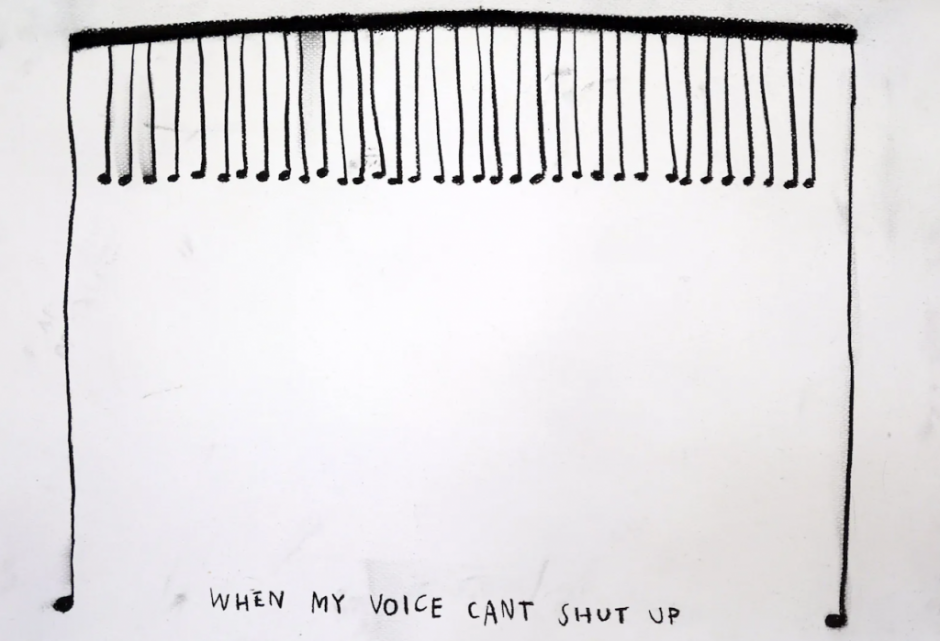On Pedagogia de La Ternura
(roughly translated as Pedagogy of Tenderness/Care/Affection)
This week, I was talking with one of my PG Cert colleagues about how the British teaching system seems to be focused on teachers’ boundaries, on not getting too invested, on signposting and not getting involved. Some teachers can go home and turn their teaching off; I envy them. I used to see my hyper-investment as a failure, probably a gendered and racialised one that can be read as integral to the exploitative structures of the neoliberal university. (Järvinen and Mik-Meyer, 2024; Purdy, 2024; Mattern, n.d.) But the thing is, I love my students. I know love can be a scary and intense word in English; as if it’s a finite resource or a feeling that carries demands or expectations. But look at radical Peruvian pedagogy (as well as other Latin American and African pedagogies, or even black, brown and queer pedagogies in the Global North). You’ll find that love is central to forms of teaching that take into consideration the lived experiences of violence, oppression and trauma that are part of the everyday of many of our students and of many of us. Love, in this context, is an act of political solidarity.
I grew up in Peru during the Internal War years and then moved to Brazil when I was ten years old in 1989, just before the first democratic elections after the dictatorship ended. The radical liberation pedagogies I experienced growing up emerged in those countries as part of a realisation that to teach amid so much violence and trauma required a different type of student/teacher dynamics. In opposition to the current British obsession with the production of affects in service-based exchanges, including teaching, these pedagogies clearly distinguish between students’ needs to feel loved versus being loved.
“Yo resumiría esto quizás de esta forma. La Pedagogía de la Ternura quiere recuperar y contribuir a hacer de la relación interpersonal una relación social y una relación que tiene que ver fundamentalmente con el sentido social y político en el cual los seres humanos estamos inscritos, ¿no?
(Cussiánovich Villarán and Schmalenbach, 2015, p. 61)
I would maybe summarise it like this: Pedagogia de la Ternura wants to recover and contribute to making the interpersonal relation a social relation and a relation that is fundamentally concerned with the social and political contexts in which we are inscribed as humans. Does that make sense? [my translation]
Pedagogia de la Ternura was developed by a group of teachers between 1975 and 1990 in Peru and continues to be in use and in discussion. As Freire’s Liberation Pedagogy, it emerged from the Liberation Theology movement. It is shared and historised through praxis; oral histories, interviews with one of their main theorisers, Alejandro Cussiánovich, and the teacher’s groups that meet to talk about their practice. It is purposefully almost inaccessible in English. I asked a Peruvian sociologist of education about it years ago, because I wanted references for books and papers to read. “You’ve become such a gringa,” she said. Pedagogy is about practice and discussions; you develop it by doing it and thinking about it collectively. It’s not something you can put on a book, sell, buy, consume and go around citing and using as branding so people in the Global North can build their academic careers. I guess we all learned from decolonisation… Pedagogia de la Ternura is focused on the human scale, on intimacy, and on the decisions you make in the specific situations in which you and your students encounter yourselves while always already being actively aware of and engaged with the social and political conditions in which we all live together.(Cussiánovich Villarán, 2020)
Bibliography
Cussiánovich Villarán, A. (2020) ‘In class, I do not face the students’. Available at: https://kulczykfoundation.org.pl/en/tenderness-and-freedom/tenderness-and-freedom/In_Class_I_Do_Not_Face_The_Students (Accessed: 13 February 2025).
Cussiánovich Villarán, A. and Schmalenbach, C. (2015) ‘La Pedagogía de la Ternura -Una lucha por la dignidad y la vida desde la acción educativa | The Pedagogy of Tenderness –A struggle for dignity and life from the educational action’, Diá-logos, 16, pp. 63–76.
Järvinen, M. and Mik-Meyer, N. (2024) ‘Giving and receiving: Gendered service work in academia’, Current Sociology, p. 00113921231224754. Available at: https://doi.org/10.1177/00113921231224754.
Mattern, S. (n.d.) The Limits of Refusal, Words in Space. Available at: https://wordsinspace.net/ (Accessed: 5 March 2025).
Purdy, M. (2024) ‘Closing the Gap: A Literature Review of Gender Disparities in Higher Education’, Pepperdine Journal of Communication Research, 12(1). Available at: https://digitalcommons.pepperdine.edu/pjcr/vol12/iss1/5.
